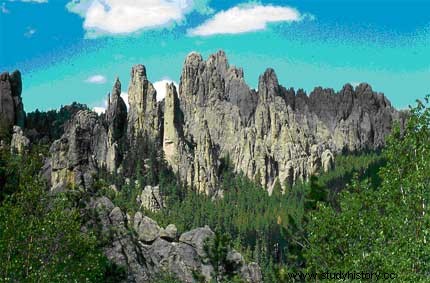Leaving aside the maxim of the great Groucho Marx :«These are my principles. If you don't like them I have others «, in this society lacking values, and principles, in which vile metal rules, the answer, being honest, would be yes . But, to this day, there are still places where principles are above money, even living in poverty. Also, this place is embedded in the US.
In 1851 the first treaty of Fort Laramie was signed in which the US recognized the Lakota Nation's ownership of the occupied lands (about 80,000 square km) and, in exchange, the Indians allowed the passage of white settlers. Unfortunately for the Lakota, gold was discovered in the mountains of Montana. The "gold rush" swept thousands of prospectors and the American government sent in the army to build more forts and protect a corridor (Bozeman Trail) that, through the hunting territory of the Indians, reached the mines.
This caused confrontations between Indians, miners and the army, with skirmishes, small confrontations and great battles such as Little Big Horn (Sitting Bull defeated Custer and his 7th Cavalry ). The Lakota defended their sacred mountains, Black Hills to the death. . In the end, and due to the superiority of the American army, the Indians were defeated, some fled to Canada and others were confined to small reservations. In 1877, in its new position of superiority, the US Congress appropriated the Black Hills.

Black Hills
In 1981, and after several Commissions, Claims, Appeals and other legal questions between the Federal Government and the representatives of the Lakota Nation, the Supreme Court confirmed the sentence by which the Lakota Nation was compensated with 122.5 million dollars and, at the same time, it denied any right of the Lakotas to recover ownership of the territories established in the first treaty of 1851.
As of today, that amount could rise to some 500 million . Its legitimate owners survive selling trinkets and continue to fight for the treaty, broken by the white man, to be respected and to recover their sacred mountains. Others would have lacked time to collect the money.
Source:The Black Hills Are Not For Sale, 2,500 Years of History Laid Back (Tony Perrottet), Wikipedia
Image:Black Hills
